By Les Dunseith
Dedicated. Self-sacrificing. Hard-working. Underappreciated.
These are words often used to describe America’s social workers — individuals who sacrifice of themselves to provide the safety net for people in need in places like schools, hospitals, mental health facilities and family services agencies.
People like Rosina Becerra.
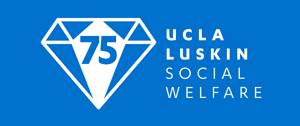 For 48 of UCLA Social Welfare’s 75 years, she’s been conducting research, teaching and taking on a daunting series of sometimes-thankless administrative challenges in a relentless pursuit of making things better.
For 48 of UCLA Social Welfare’s 75 years, she’s been conducting research, teaching and taking on a daunting series of sometimes-thankless administrative challenges in a relentless pursuit of making things better.
Becerra has overseen the field faculty. She’s been a department chair (for more than one department) and a dean. She was a vice provost and a vice chancellor. She has run academic centers and served as a chief financial officer. She’s been a personal mentor to hundreds.
Even after joining the ranks of emeriti professors in 2016, Becerra hasn’t stopped helping out at UCLA. She is a member of the Board of Governors with the Faculty Club. She is president of the executive board for the UCLA Emeriti Association. She served on the campuswide COVID-19 Task Force. She is a special assistant to the vice chancellor for academic personnel. She’s also helping to plan Social Welfare’s 75th anniversary celebration.
If there’s a need, Becerra steps up.
Take 1998, for example. When then-Chancellor Albert Carnesale identified diversity as one of the areas demanding immediate attention in his “Strategy for a Great University,” an associate vice chancellor for faculty diversity was sought. Becerra, who came to UCLA in 1975 and was the first Latina at UCLA to be tenured in 1981, was selected.
For five years in that role and another three as vice provost of faculty diversity and development, she was responsible for promoting ethnic and gender equality in a place where many white male professors tended to stay on the job for decades.
“It’s not like running a company — you can’t just fire people and hire new ones,” said Becerra, stressing that the key to success as an academic leader requires gaining the respect of faculty. “They have to feel like someone’s in charge, you know, and listening, and making sure that things are going to get done.”
Fostering diversity is not quite as difficult in a field like social work that tends to attract workers of color, and UCLA’s Social Welfare program has long been more diverse than UCLA as a whole. An emphasis on diversity was accelerated in recent years at the Luskin School, which today has a full-time and ladder faculty that is 50/50 women and men, and 50% faculty of color. The student body is the most diverse in the University of California system.
Still, change often comes slowly in academia, including within social work education.
“In the past, we were, in many ways, a very cloistered profession,” she said. “We had very strict rules about what the curriculum looked like.”
Society has changed, however, and the profession has been evolving. Social work education is changing, too.
Becerra said, “We still have an accrediting body that’s very strict, but it has loosened up in the sense of broadening what is needed in the profession: How do we begin to look at other types of services and what kinds of skills are needed?”
Today’s students do more research and take a more rigorous analytical approach, she said, and that means “more statistical analysis than we used to have.”
“Whether you’re in health or you’re working with children or you’re working with the elderly or you’re looking at race and ethnicity — these are all areas of social welfare.”
What has not changed is UCLA’s emphasis not just on social work but on social welfare, which encompasses more of the human condition.
“Whether you’re in health or you’re working with children or you’re working with the elderly or you’re looking at race and ethnicity — these are all areas of social welfare. We have a broader perspective, and that allows UCLA Social Welfare to attract faculty members with broader, interdisciplinary perspectives.”
Identifying and promoting new approaches served Becerra well in finding solutions to problems during her time as associate dean and then dean from 1986 to 1994 in what was then known as the UCLA School of Social Welfare.
She led the field training program through a time of conflict, she recalled, developing a point system that reassured ladder faculty that the field instructors were carrying a fair load of classroom instruction and other duties.
During her tenure as dean, Los Angeles was beset by racial tensions that erupted in violence. (Read more about Social Welfare’s role in helping the city cope during these difficult times.)
This was also a time of intense economic pressure in higher education.
“UCLA was, I think, $33 million in debt,” she recalled. To survive, it became clear that smaller schools like UCLA Social Welfare would be merged with other degree programs into new entities — a forced combination that few faculty members welcomed.
“I could see the writing on the wall. There was no way we were going to avoid this,” she said.
For social welfare education to continue at UCLA meant merging with urban planning and adding public policy to become the UCLA School of Public Policy and Social Research. But how does that work?
“The argument we laid out was that UCLA is the only department that taught social policy regularly. We taught social policy in child welfare, in mental health and in gerontology. And social policy knowledge was needed in our social service agencies,” she said.
Another thing the three degrees have in common, she thought, was their goal of improving the human condition through policy change.
“The people in public policy are the ones that develop policy. In urban planning, they begin to put some meat on the bones of the policy and figure out how it should be implemented,” Becerra said. “And in social welfare, we implement the policy, and we make it work within the communities and in the institutions.”
She helped the School take its difficult first steps on the path toward what UCLA Luskin is today, but Rosina Becerra knows from firsthand experience that being a university leader is never easy. It takes dedication, sacrifice, hard work, toughness — and perseverance.
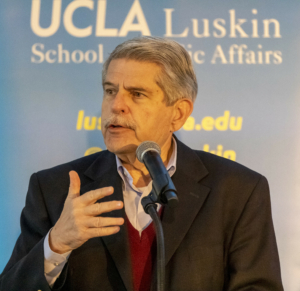
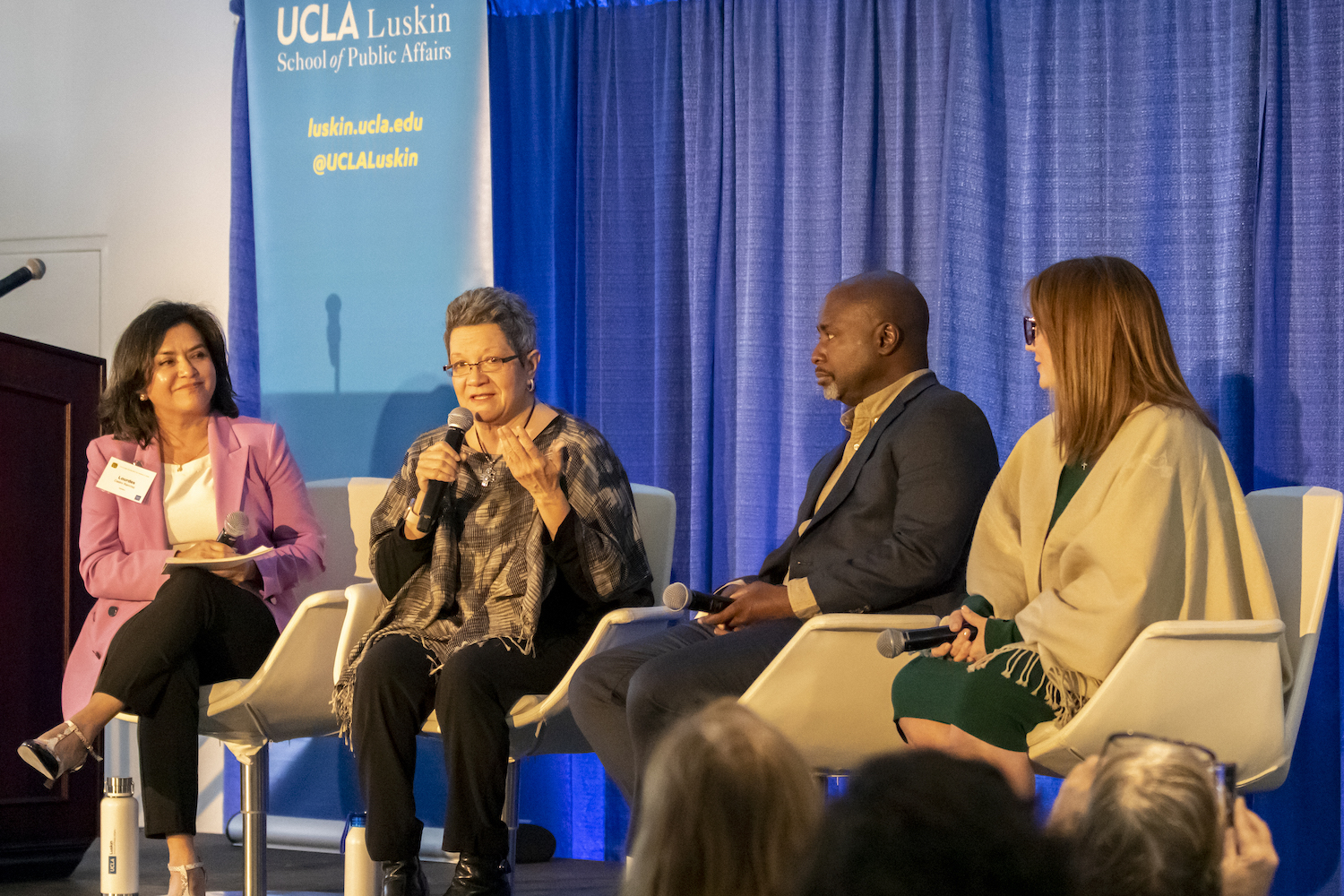
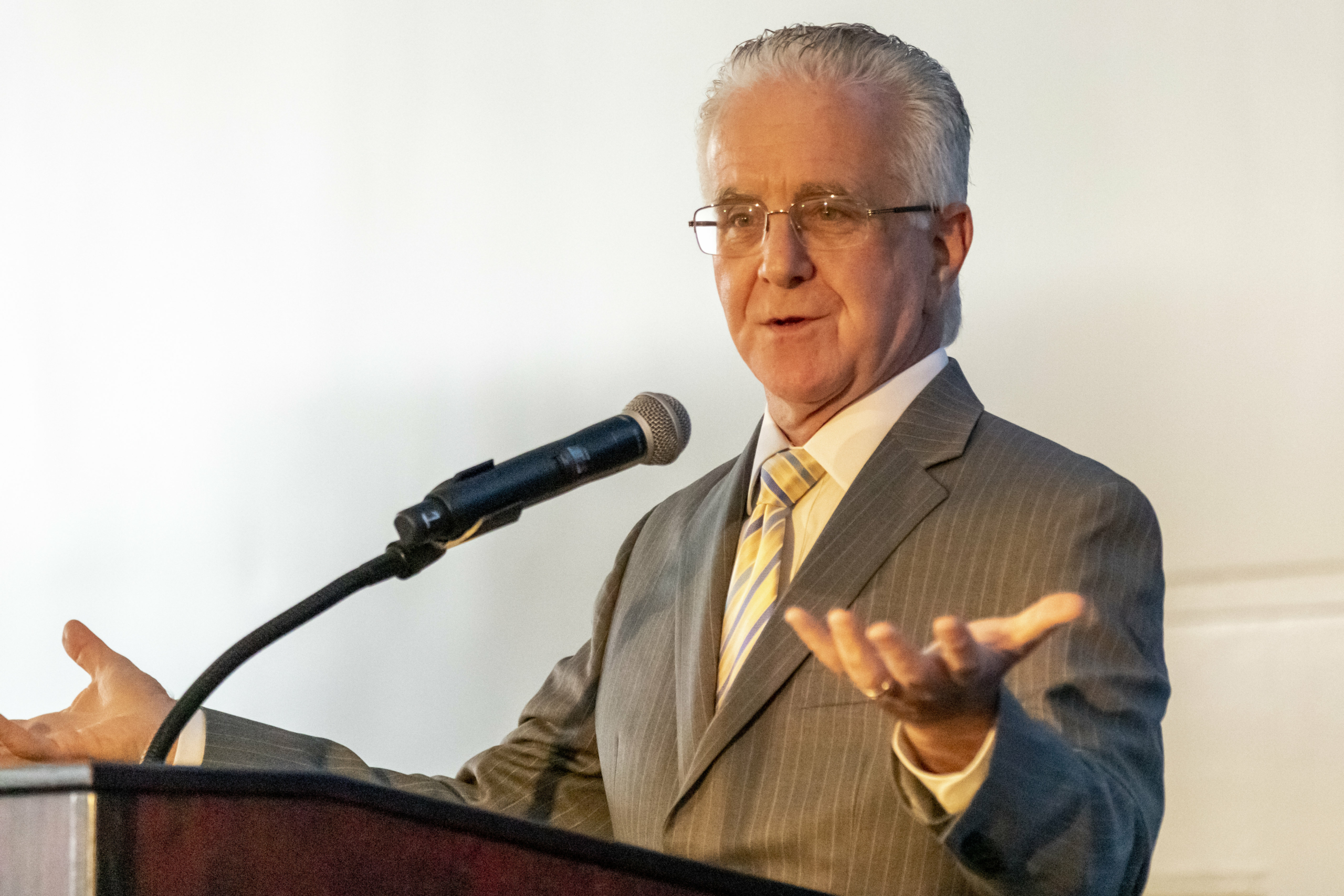
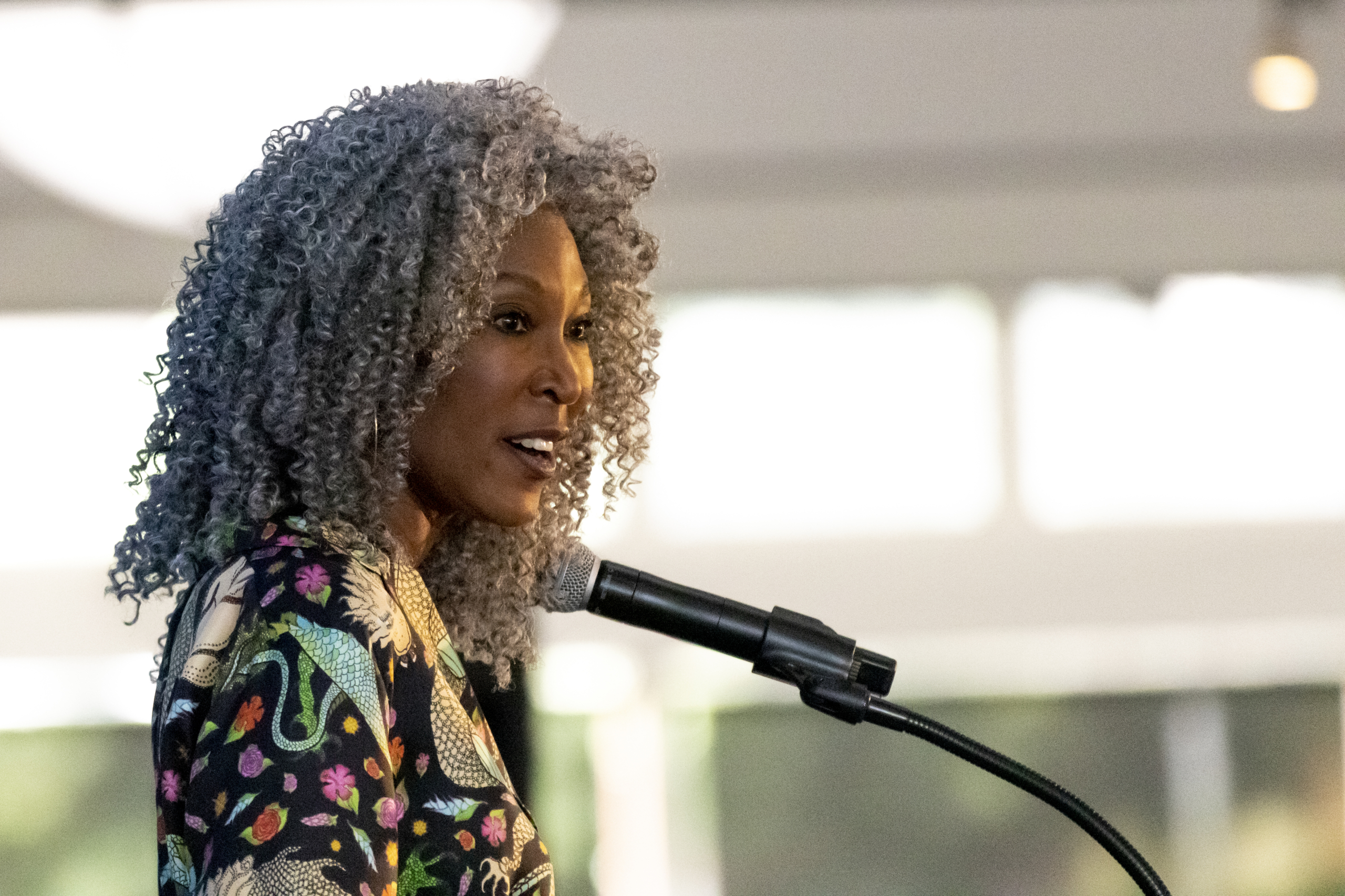
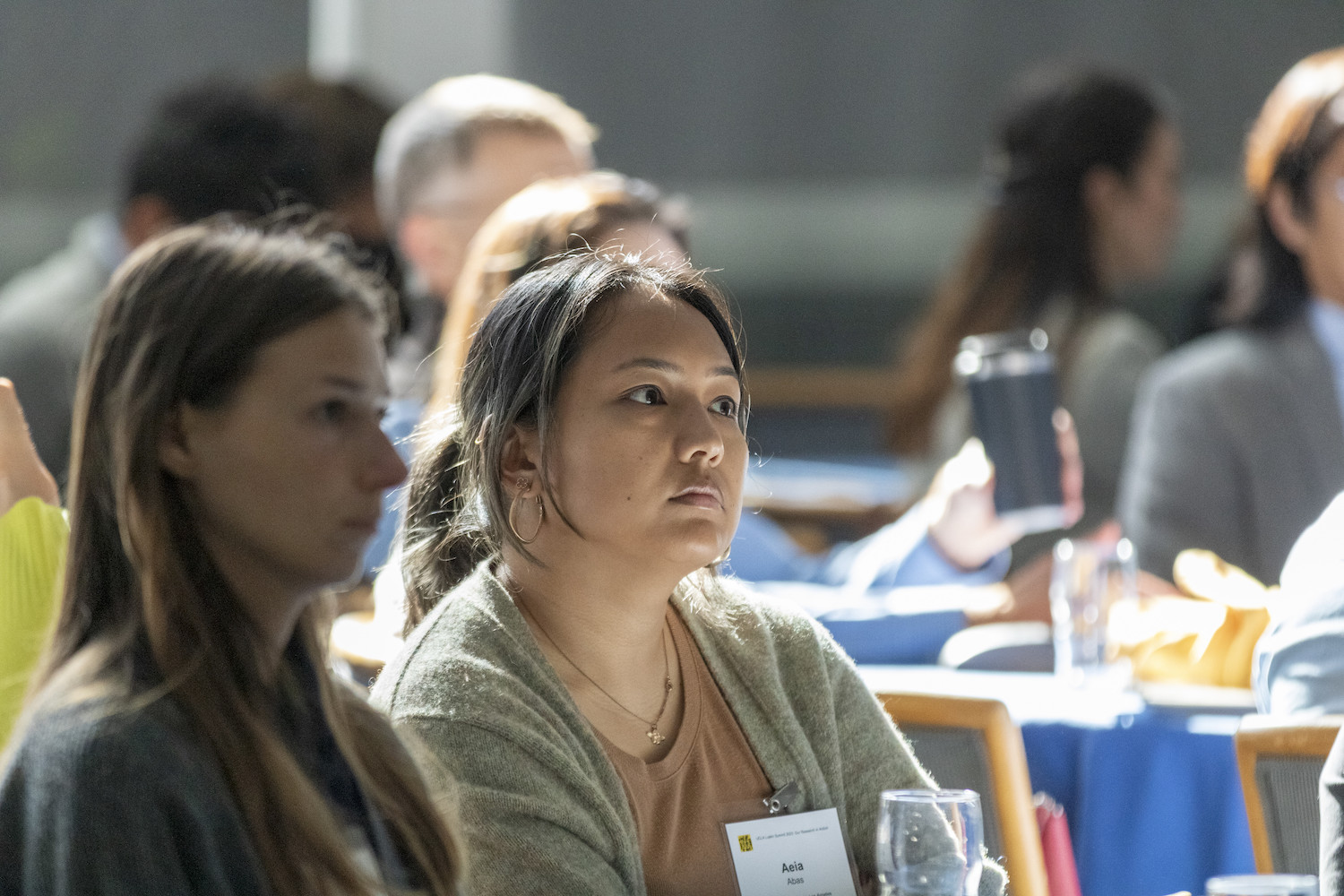
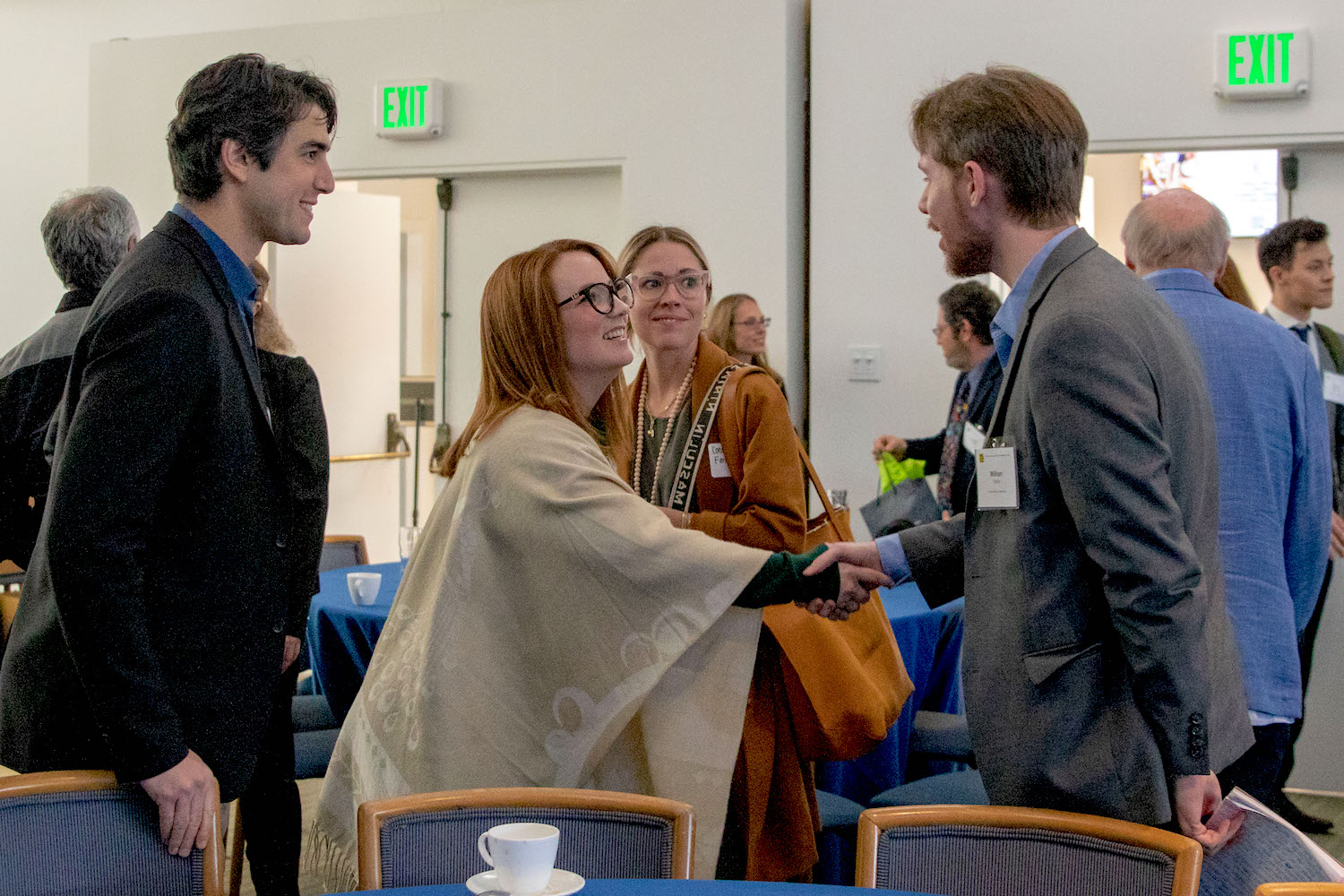

 Recalling his time as an MSW student from 1968 to 1970, he said, “One of the major transitions — and it’s still always going to be an issue — I think was diversity.”
Recalling his time as an MSW student from 1968 to 1970, he said, “One of the major transitions — and it’s still always going to be an issue — I think was diversity.”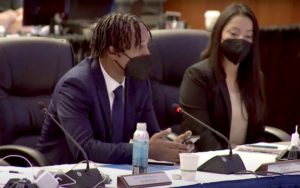
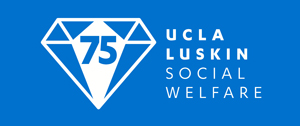 “It was January. I was writing a paper — my constant preoccupation,” Rothman said. “I hear a voice, ‘This is Dean Leonard Schneiderman, you know, school of social work at UCLA. Would you be willing to come out for an interview visit?’”
“It was January. I was writing a paper — my constant preoccupation,” Rothman said. “I hear a voice, ‘This is Dean Leonard Schneiderman, you know, school of social work at UCLA. Would you be willing to come out for an interview visit?’” For 48 of UCLA Social Welfare’s 75 years, she’s been conducting research, teaching and taking on a daunting series of sometimes-thankless administrative challenges in a relentless pursuit of making things better.
For 48 of UCLA Social Welfare’s 75 years, she’s been conducting research, teaching and taking on a daunting series of sometimes-thankless administrative challenges in a relentless pursuit of making things better.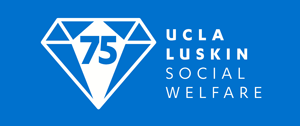 The grant from the California Department of Health Care Access and Information will allow the UCLA Luskin School of Public Affairs to add 25 additional students to its master of social welfare program each year, beginning in the fall of 2024.
The grant from the California Department of Health Care Access and Information will allow the UCLA Luskin School of Public Affairs to add 25 additional students to its master of social welfare program each year, beginning in the fall of 2024.